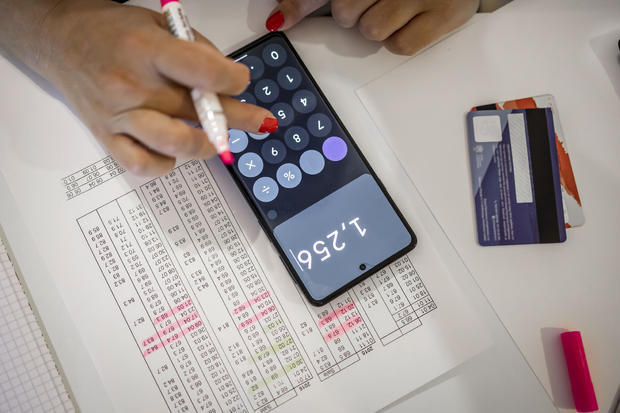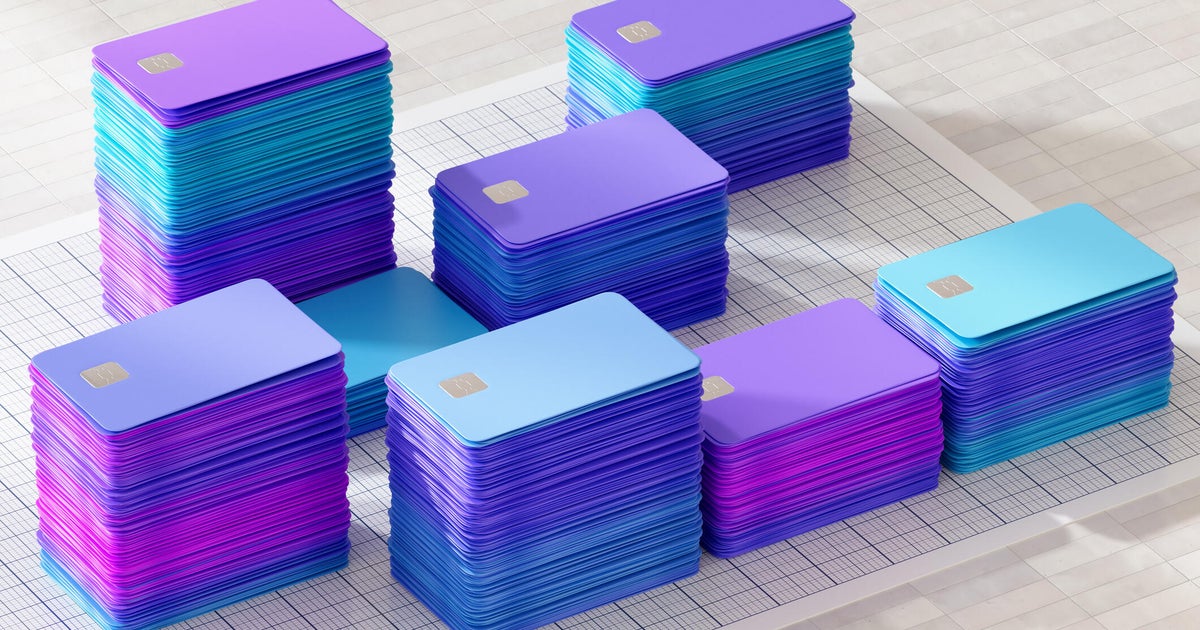How much does credit card debt consolidation cost?
Credit card debt in the U.S. has reached alarming levels, with the total nationwide now sitting at $1.14 trillion. Part of the issue is that interest rates on credit cards are at record highs, averaging around 23% currently. The high-rate nature of this type of debt, coupled with the compounding interest charges, can create a cycle in which the minimum monthly payments barely make a dent in the balance. As a result, more cardholders are falling behind on what they owe.
If you're searching for ways to tackle your credit card debt before it spirals out of control, there are various strategies to address it, from making extra payments to negotiating with creditors, but one of the more structured approaches is debt consolidation. This option involves combining multiple high-interest credit card balances into a lower-interest loan, helping to lower the total cost of debt over time and simplify payments without severely damaging your credit score. That makes it appealing to a wide range of cardholders.
But while debt consolidation can be an attractive and effective strategy, it's important to understand that it comes with additional costs. So before you decide to take this route, you should be aware of the price, which could impact the overall savings it offers.
Find out how debt relief could make your credit card debt more affordable.
How much does credit card debt consolidation cost?
Debt consolidation can typically be pursued in two primary ways: either through a debt consolidation loan or via a debt consolidation program. Each option comes with its own set of costs, which you should carefully evaluate before proceeding.
Debt consolidation loan costs
A debt consolidation loan is a loan you take out specifically to pay off your existing credit card balances. There are multiple loan options to choose from — including debt consolidation-specific loans, personal loans or even home equity loans — but no matter what loan you use, the idea is to secure a loan with a lower interest rate than what you're currently paying on your credit cards. There are several potential costs associated with these loans, including:
- Origination fees: Most personal loans come with an origination fee, which is typically 1% to 5% of the total loan amount.
- Interest charges: There will also be interest charges tied to the loan you obtain and the rate will be based on your credit score, financial history and the type of loan you use. For example, the average rate on a home equity loan, which can be used for debt consolidation, is about 8.4% right now, while the average personal loan rate is about 12.4%. If your credit score is on the lower end, though, you could see rates much higher than that.
- Prepayment penalties: Some loans include penalties for paying off the loan early, so be sure to check if your loan includes prepayment penalties and factor them into your total cost.
- Late payment fees: Missing a payment on your consolidation loan could lead to late fees, which typically range from about $25 to $50 per missed payment.
Compare the debt relief options available to you now.
Debt consolidation program costs
A debt consolidation program is a service offered by a debt relief company that functions similarly to a traditional debt consolidation loan. When you enroll in this type of program, you secure a consolidation loan through the debt relief company's third-party partner lender. As with a regular debt consolidation loan, you'll typically benefit from a lower interest rate, making it easier to reduce your total debt and repay it faster. These programs also come with their own set of costs, including:
- Origination and administrative fees: Debt consolidation programs may charge origination or administrative fees, which can vary depending on the lender or debt relief agency.
- Interest charges: Although the interest rates offered by debt consolidation programs are generally lower than those of credit cards, the exact rate depends on your financial profile.
- Late fees and penalties: If you miss payments on the debt consolidation loan obtained through a program, you could incur late fees, which vary based on the terms of the program and loan.
- Other service fees: Some debt relief companies charge additional service fees as part of their program. These fees cover the cost of managing your loan and ensuring that your creditors are paid on time. It's important to clarify all potential fees before signing up for a program, so you know exactly what costs to expect.
The bottom line
The cost of consolidating your credit card debt varies depending on the method you choose and the terms offered. Debt consolidation loans generally come with origination fees, interest charges and possibly prepayment penalties, while debt consolidation programs through debt relief companies involve administrative fees, service charges and the interest on the consolidation loan itself. Understanding these costs upfront will help you decide if this debt management strategy is the right fit for your financial goals.




